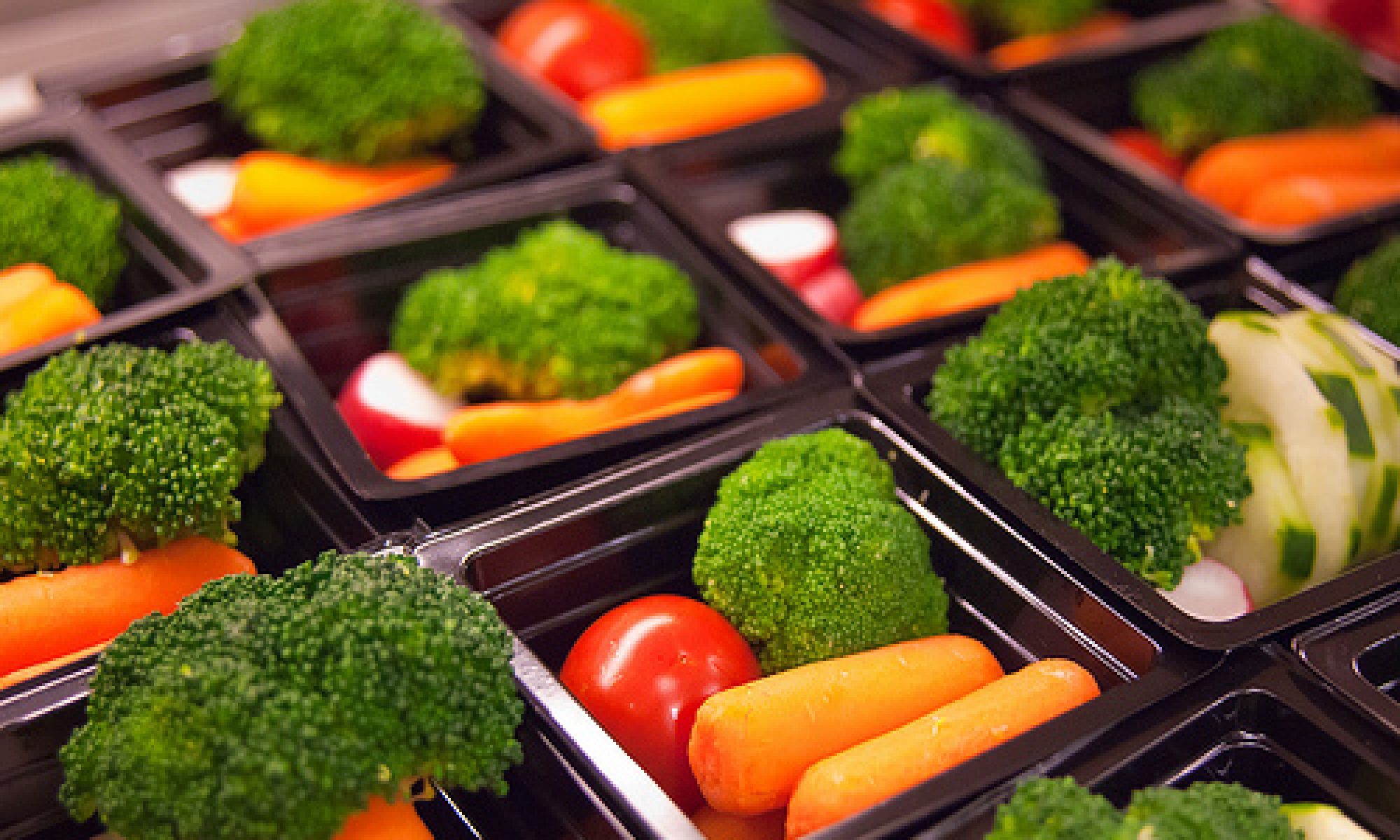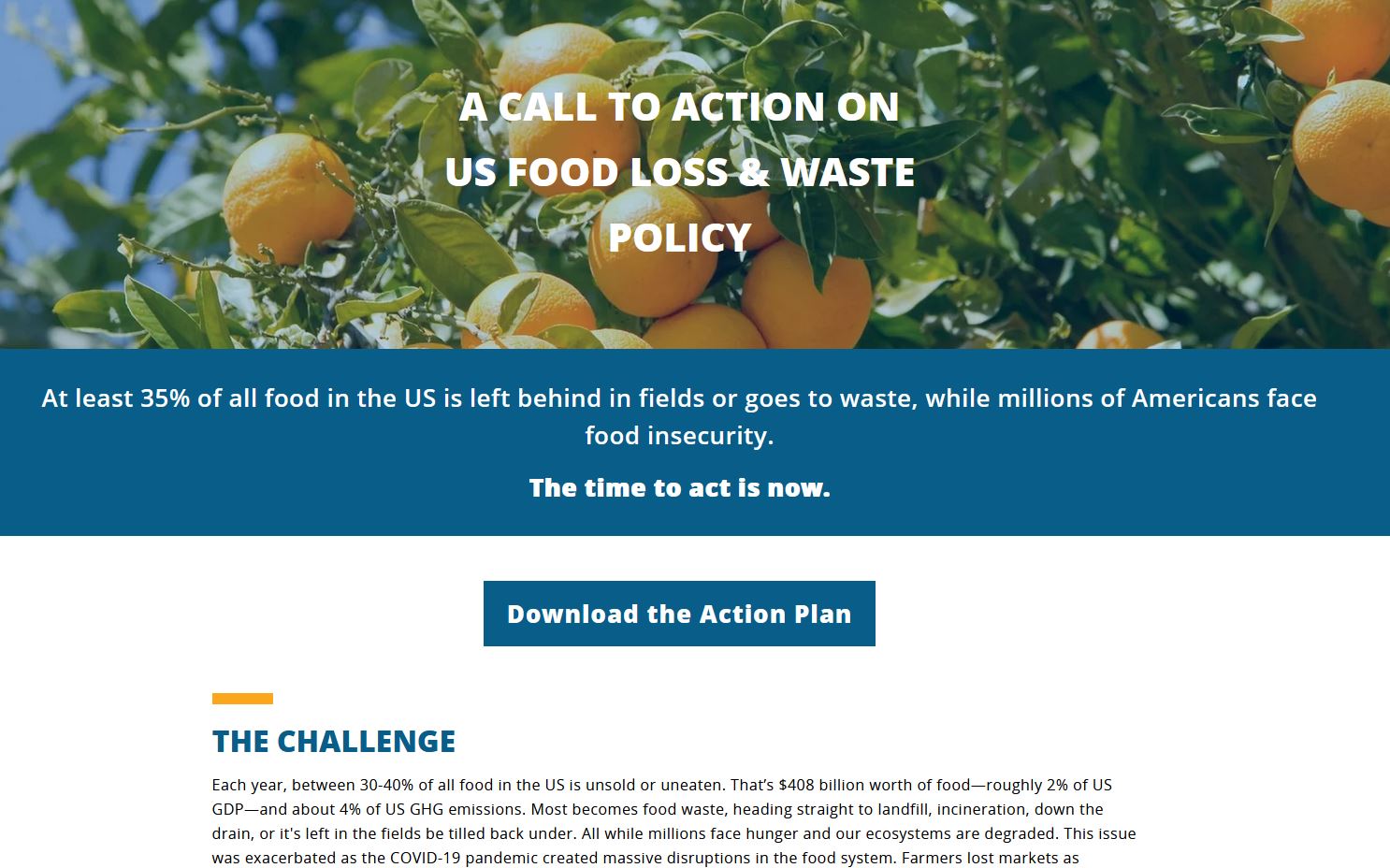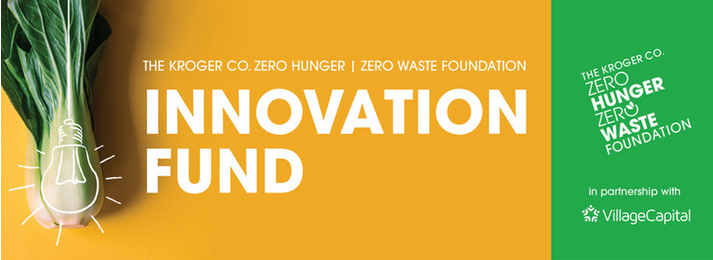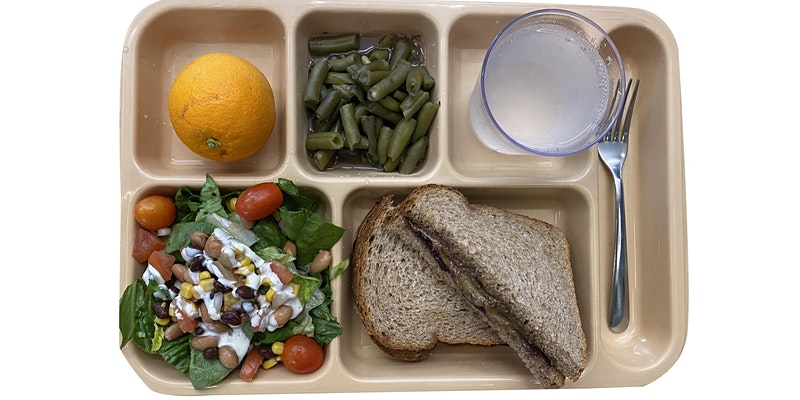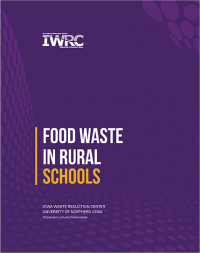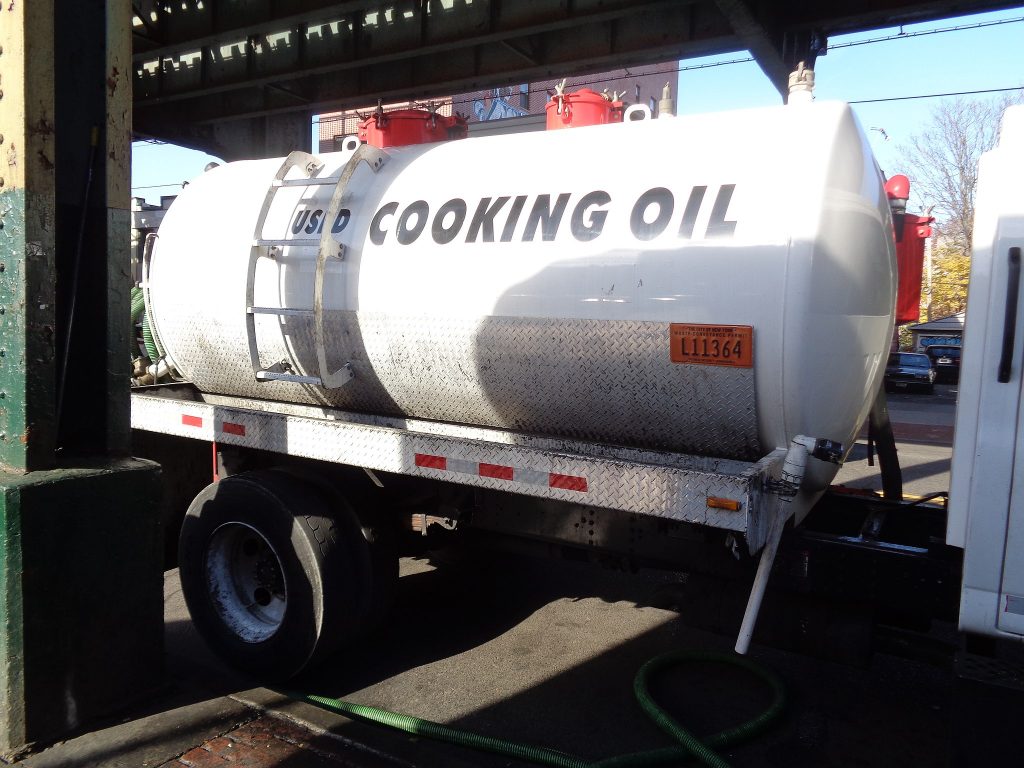![]()
Food waste in the home can often occur because of boredom or limited knowledge of how to use certain ingredients. A consumer may have leftovers in their fridge that they don’t want to waste, but can’t bear to eat one more time in the item’s current form while simultaneously not knowing how to repurpose the item for a new dish. Or perhaps they’ve acquired an edible item that’s completely new to them, so they’re not sure how to use it in the first place. This can happen when shoppers impulsively buy exotic produce or other ingredients at grocery stores without having performed research ahead of time–maybe the item just looked intriguing on the shelves, or its praises were sung by a friend or trusted podcast, prompting a desire for a new experience without adequate guidance. This type of food waste can also happen, unfortunately, when food banks distribute fresh produce in an effort to promote healthy diets without simultaneously distributing tips on how to use the produce. Donated commodities may not always fall within the range of familiarity for a food recipient, and they may find themselves having no idea what to do with the celery root or artichokes in their pre-packed food box, for example. And even if one is familiar with an ingredient, sometimes it loses its appeal when used in the same way time after time. Imagine a parent who frequently buys peas because their children love them. Those kids might become less receptive to the peas after having them prepared the same way at least once a week for a year.
Recognizing that inspiration is as important a tool in keeping food out of landfills as compost piles and meal planning, the Love Food Hate Waste Canada website includes a section called “Get Inspired.” This section not only includes tips on how to preserve or store foods to prevent waste and meal planning, it also provides a page called “5 Ways With.” This page presents five novel ways to use ingredients in the categories dairy, fruits & veggies, grains & bread, and meat & eggs.
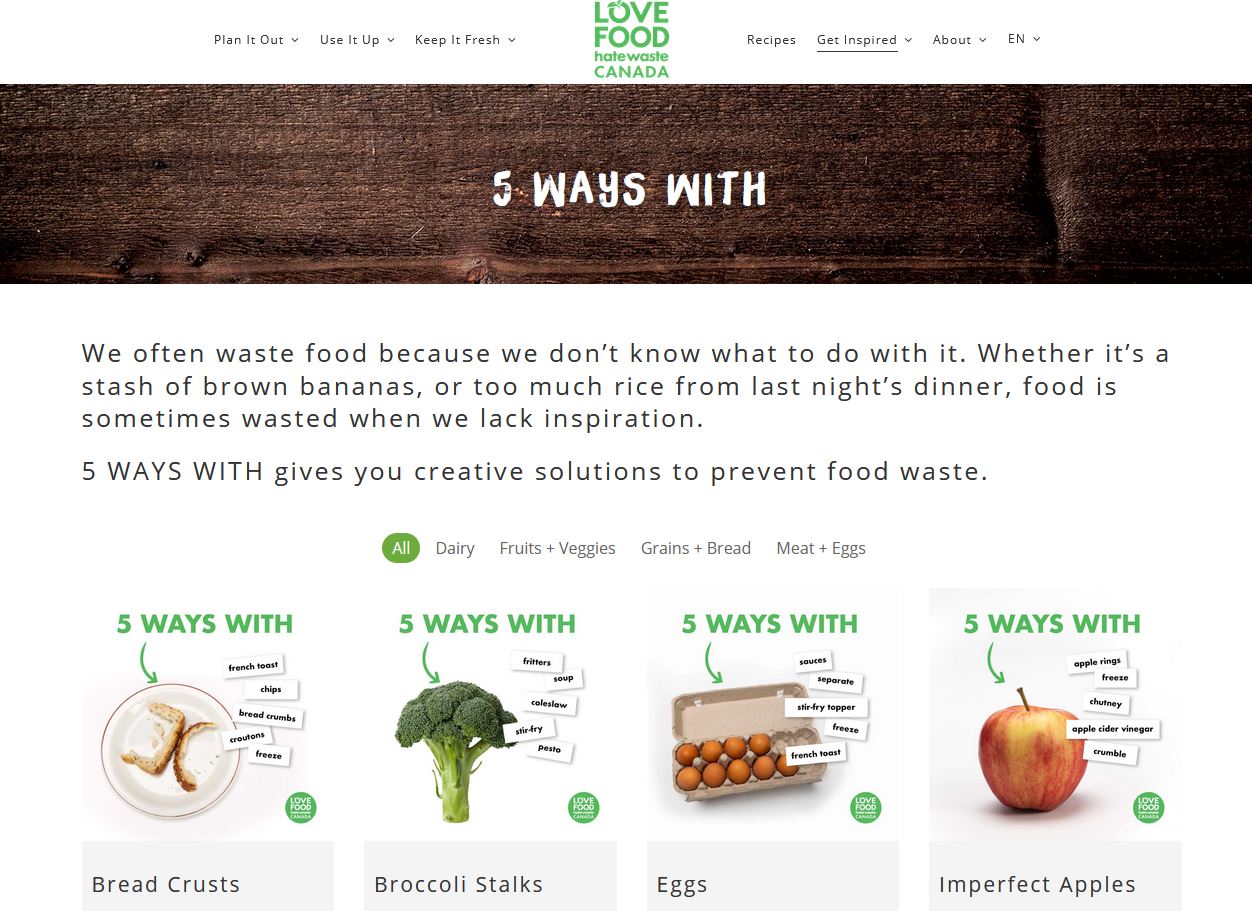
For example, broccoli stalks are suggested as the basis for fritters or pesto, or as an addition to soups, salads, or stir-frys. Whenever the suggestion calls for more detailed instruction, a link to a recipe is provided.
This web page is by no means the only place to find tips, tricks, and recipes to help you use an ingredient in a new or interesting way before it goes to waste.
The flagship Love Food Hate Waste website, launched by the UK organization Waste & Resources Action Programme, or WRAP, includes a “Recipes” section that allows users to search for ideas based on dietary parameters, preparation difficulty, or cooking time.
CookIt from the Natural Resources Defense Council (NRDC) Save the Food website helps consumers find recipes for a wide variety of ingredients, including those that are commonly thrown out as scraps, such as overripe avocados or cheese rinds. It also provides ideas for transforming ingredients that are “past their prime” to get the most use out of available food. Some of the recipes are accompanied by videos of Chef Joel Gamoran making the recipe.

SuperCook allows users to search for recipes based on ingredients they have on hand. Similar tools include MyFridgeFood, Cookpad, Cookin’ with Google, and the Use Up Leftovers tool on the BigOven recipe database website.
So the next time you’re faced with unfamiliar or uninspiring food, don’t throw it out! Get out your smartphone and consult these online tools and resources to find a way to make that edible appealing.
